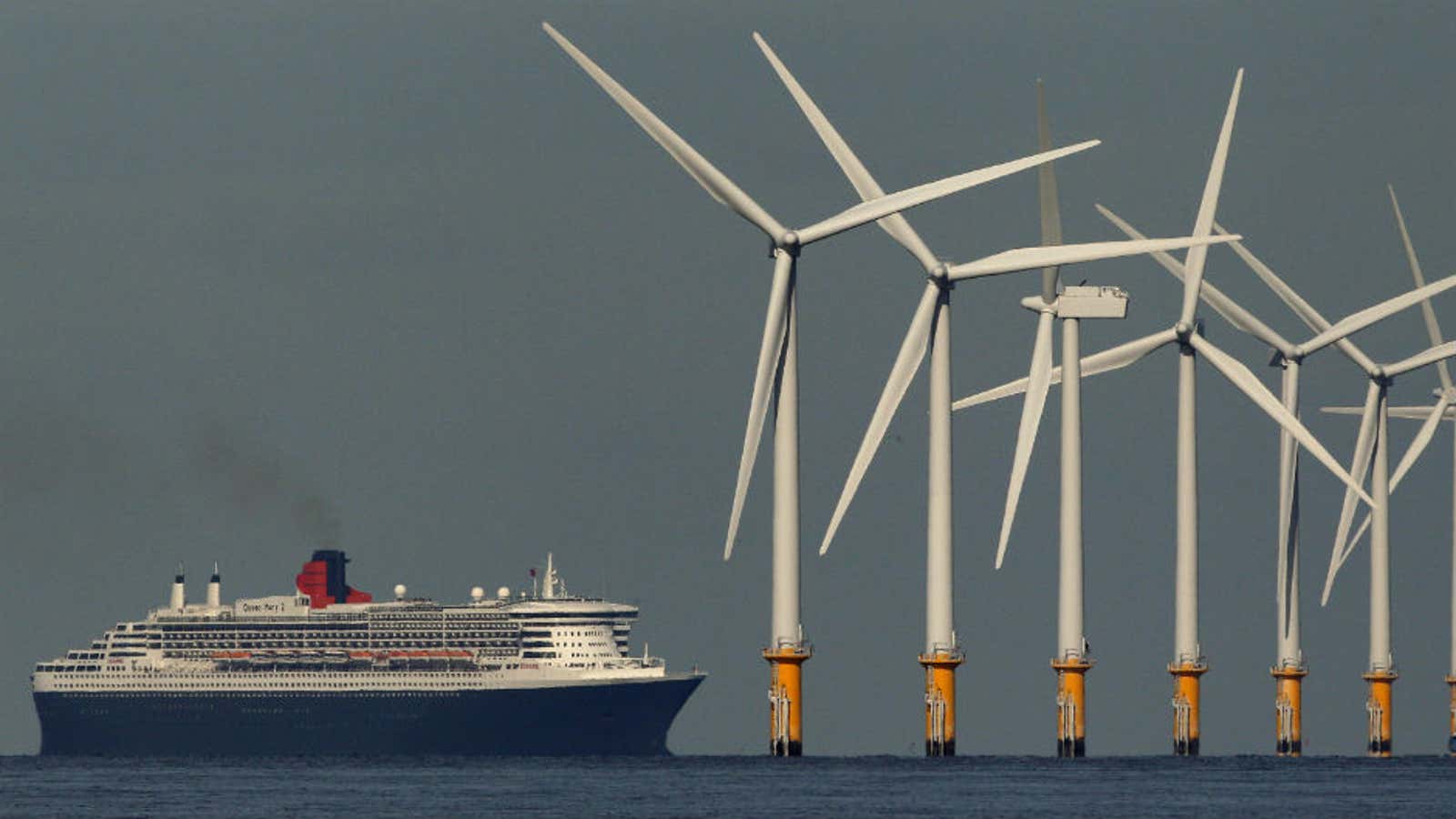Wind power might not only be better for the environment than offshore drilling, it might make more economic sense too. A new study from Oceana, an environmental advocacy group, calculates that if wind farms were located off the Eastern coast of America, they could generate more energy in just 13 years than all the recoverable offshore oil and gas reserves in the Atlantic Ocean. What’s more, offshore wind would create 91,000 more jobs than offshore drilling in 20 years.

But Oceana doesn’t try to estimate the cost of building offshore wind projects versus the costs of offshore drilling, leaving open the question of which method has the potential to offer the greatest total economic benefit.
Instead, it points out that the fishing, tourism and recreation industries most likely to be affected by offshore drilling are responsible for nearly 1.4 million jobs in states on the Atlantic coast and $95 billion in GDP.
Big oil wasted no time shooting back. Using data from a report by industry consultant Quest Offshore Resources, the American Petroleum Institute says that drilling would actually bring the government $50 billion in revenue, and more than double the number of Oceana’s jobs estimates, according to this NBC News article.

Oceana’s report also claims that a “modest and gradual” development of wind energy on the East Coast over the next two decades could produce enough energy to supply power to over 115 million households.
“Unlike offshore drilling, offshore wind provides power directly to coastal communities where we need energy the most, without the risk of oil spills or carbon pollution,” said Andrew Menaquale, energy analyst at Oceana and the report’s author.
Oil spills, such as the devastating Exxon Valdes spill in 1989 or those caused by Hurricanes Katrina, Ike and Rita, affect both the environment and local economies, and cast offshore drilling in a very harsh light. Oil platforms also produce significant pollution of their own, and methods used to drill and survey oil and gas reserves cause significant harm to the coastline and marine wildlife.
The Oceana report recalls the US government’s own estimates of the effects of seismic blasting in the Atlantic. A depressing government review says the blasts could affect most marine wildlife, but especially mammals, injuring as many as 138, 000 whales and dolphins and disrupting the lives of as many as 13.5 million more.
